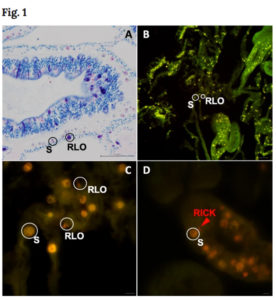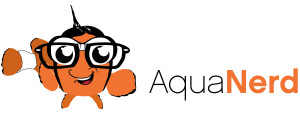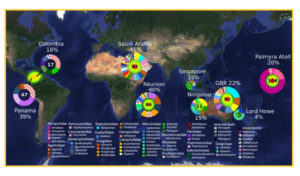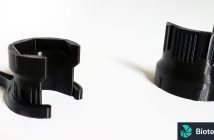The relationship between bacteria and Corals has recently become a hot topic on Reef2Reef as a result of a research paper recently published in the Nature journal.
The study estimates that about 1/3 of all corals worldwide are infected with this newly discovered bacterium which researchers named,Candidatus Aquarickettsia rohweri. The bacterium can be found in a number of corals that we commonly keep in our aquariums including, Acropora, Goniopora, Montipora, Seriatopora and Stylophora species. Additionally, it can also be found in anemones. Researches also discovered the bacterium can be transmitted through coral eating parasitic snails and transported through seawater whereby it can potentially infect corals when tissue damage is present.

Corals that are infected with Candidatus Aquarickettsia rohweri exhibit little to no growth. Researchers hypothesize the bacterium directly robs the coral of ATP and amino acids from the host cells, sapping the host’s energy. Rebecca L. Vega Thurber, one of the lead researchers on the project, believes that these parasitic bacteria kill corals in one of two ways: “They directly sap the coral of its nutrition and resources; or alternatively, make it susceptible to additional pathogens.” Whether the bacterium kills the coral on its own or compromises its immunity to other diseases, it’s clear that Ca. A. rohweri, when found in abundance, is a deadly threat. She also stated, “The primary thing we want people to take away is that this bacterium is a parasite. We know that it causes the coral to not be able to grow, but only under specific conditions.
To read the the entire research paper please visit the link above or you can follow along on the discussion but visiting this very interesting Reef2Reef thread that was started by Reef Builders.






